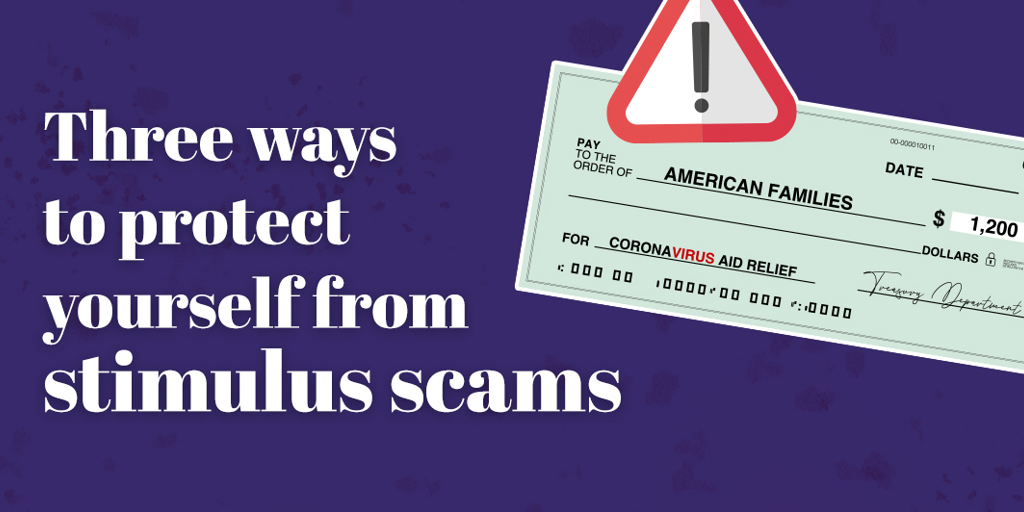


Three ways to protect yourself from stimulus scams
The Federal Trade Commission (FTC) is cautioning Americans to be mindful of various schemes targeting Economic Impact Payments, also known as stimulus checks. Here are a few things you can do to protect yourself if Congress passes a second stimulus package: Don’t pay to receive your stimulus payment.
Don’t pay to receive your stimulus payment.
If there’s another stimulus payment, it will look a lot like the first one. No one will call you and request your social security, bank account or credit card number. And those who qualify will receive their payment via direct deposit or paper check, just like before. You will never have to pay to receive your Economic Impact Payment.
Don’t pay for job opportunities.
Scammers know that millions of people need jobs, and they’ll be happy to charge you for what winds up being nothing. Scammers also pay for online ads, promising you ways to earn money online. But do your research before you sign up—and certainly before you pay.
Never pay up front for mortgage assistance.
According to the FTC, it’s actually illegal for companies to charge you before they assist you with your mortgage. Unfortunately, that doesn’t keep scammers from trying. If you find yourself behind on your mortgage, contact your mortgage servicer as soon as possible to discuss your options. Whether you rent or own, consult a legal services organization if you believe you’re facing foreclosure or eviction.
If you encounter any of these scams, immediately report them to the FTC here.
Ray Wills is the security officer at F&M Trust
Recent Articles
Join our e-newsletter
Sign up for our e-newsletter to get new content each month.






















